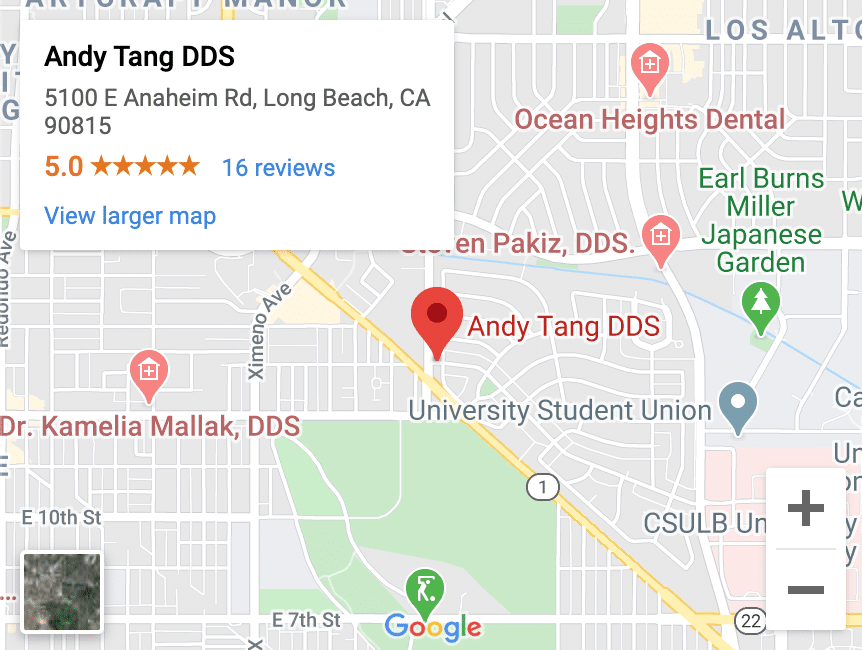Dental treatments might soon be performed more effectively, quicker and more comfortable thanks to the increasing popularity of laser dentistry. Laser, which stands for Light Amplification by Stimulated Emission of Radiation, treatment has been used in a number of medical procedures for years. As technology continues to improve and its costs decrease, a growing number of dentists will use dental lasers.
What Is Laser Dentistry?
Laser dentistry is where dentists use lasers to treat numerous dental issues. It first became used commercially in clinical dental practices for treatments that involved tooth tissue in 1989.
It potentially provides you with a more comfortable treatment experience for a variety of dental treatments that involve soft or hard tissue compared to other non-laser technology like drills.
The laser creates light energy in an extremely focused and narrow beam. After it hits tissue, the light from the laser produces a reaction which allows it to shape or remove the tissue.
Dentists use laser dentistry in a number of treatments, including:
- Gum disease: The laser helps to remove bacteria and reshape gums during a root canal procedure.
- Tooth decay: It’s used for removing decay within a tooth and preparing the surrounding enamel to receive the filling.
- Teeth whitening: It’s used for speeding up professional teeth whitening procedures. The laser energy “activates” the peroxide bleaching solution the dentist applies to your tooth surface. This makes the whitening process quicker.
- Lesion removal or biopsy: It’s used for a biopsy (the removal of a small tissue piece) so it can be tested for cancer. A laser can also help relieve canker sore pain and remove lesions in the mouth.
Laser dentistry is FDA-approved as an option of treatment for several dental conditions. It makes dental treatments more cost effective, efficient and comfortable.
Benefits of Laser Dentistry
Dentists use laser dentistry since they offer many distinct benefits that make dental treatments go more efficiently as well as reduce healing time and discomfort for patients. Some of these benefits include:
- You might not require anesthesia
- You’re less likely to need sutures
- There’s less gum damage which shortens healing time
- The laser sterilizes your gums, which makes infection less likely
- You bleed less than you would with traditional dental surgery
Types of Lasers
There are two primary types of lasers:
1. Hard Tissue Lasers
Dentists use hard tissue lasers mainly for teeth. The laser’s wavelength cuts through both bone and water, specifically the calcium phosphate you have in your teeth and bones. Hard tissue lasers can cut into your teeth very accurately, removing small amounts for preparing for procedures or shaping purposes. Dentists use these lasers for:
- Dealing with tooth sensitivity
- Detecting cavities
- Preparing teeth for dental fillings
2. Soft Tissue Lasers
A soft tissue laser uses a light wavelength that water and hemoglobin easily absorb. Hemoglobin is a molecule in your blood that makes a soft tissue laser perfect for gum work.
Soft tissue lasers are perfect for the dentist to cut into your soft tissue and sealing any blood vessels exposed simultaneously. Because of this, you don’t bleed as much which is what makes healing faster after laser dentistry. A soft tissue laser is great for cosmetic treatments since you could start seeing results immediately. The dentist uses these lasers for:
- Handling restricted tongue motion
- Lengthening crowns
- Removing oral soft tissue folds caused by dentures
- Reshape the gums for creating a more pleasant smile
Whether you’re having laser hard tissue work or laser gum surgery, you should experience a much easier treatment and shorter recovery time. And, regardless of whether the dental procedure is simply cosmetic or serious in nature, laser dentistry is a more convenient treatment for a lot of dental and oral problems.
While you still need to follow proper care and cleaning instructions precisely, you’re less likely to develop an infection. You likely won’t experience the discomfort and pain associated with scalpel surgery either since your post-op irritation will most likely be minor.


